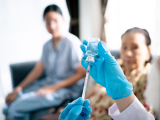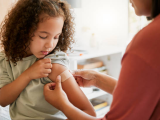Jan 26, 2010
Bahamas receive first H1N1 vaccines
After months of delay, the Bahamas has received its first shipment of H1N1 influenza vaccines—just as cases of the pandemic virus trend down in much of the world. The Nassau Guardian reported that the 30,000-dose shipment, purchased through the Pan American Health Organization, arrived Jan 20, 2 months late. The Bahamas has recorded 41 cases of novel H1N1 since the pandemic began.
Bay area commuters offered flu shots
Passengers on the East Bay routes of the Bay Area Rapid Transit (BART), the commuter-train line linking San Francisco and Oakland, Calif., will be offered H1N1 vaccinations during this afternoon's commute. The shots, offered in the Oakland BART station, are a collaboration between BART and the Alameda County Health Department, which believes it is the first such offering in the United States.
http://www.sfgate.com/cgi-bin/article.cgi?f=/c/a/2010/01/26/BAPP1BNCJ5.DTL
Jan 26 San Francisco Chronicle story
Novartis profits rise as it issues warning to nations
Swiss pharmaceutical company Novartis today announced an 8% increase in profits from 2008 to 2009, driven largely by sales of H1N1 vaccine, Agence France-Presse (AFP) reported. But during the announcement in Basel, outgoing CEO Daniel Vasella warned that the company could retaliate against governments now trying to cancel flu-shot contracts. Countries reneging on payment for vaccines that have already been delivered will not receive a priority response during the next pandemic, he said.
http://www.physorg.com/news183705900.html
Jan 26 AFP report on profits
High rate of H1N1 complications in pregnancy
Australian researchers report that, of 43 pregnant women admitted to hospitals with H1N1 flu infection between May and July 2009 in the state of Victoria, Australia, 8 were admitted to intensive care and 1 died. In addition, 2 of the pregnancies were miscarried and 1 child died after birth. Half of the women had no underlying conditions, and three-fourths were given antiviral treatment; one-third of those receiving antivirals began them within 2 days of the start of symptoms.
http://www.journals.uchicago.edu/doi/abs/10.1086/650460
Jan 25 Clinical Infectious Diseases abstract


















